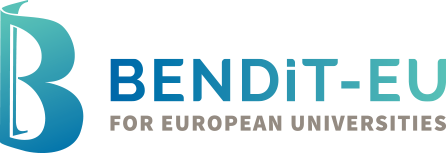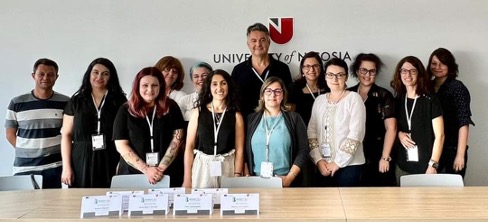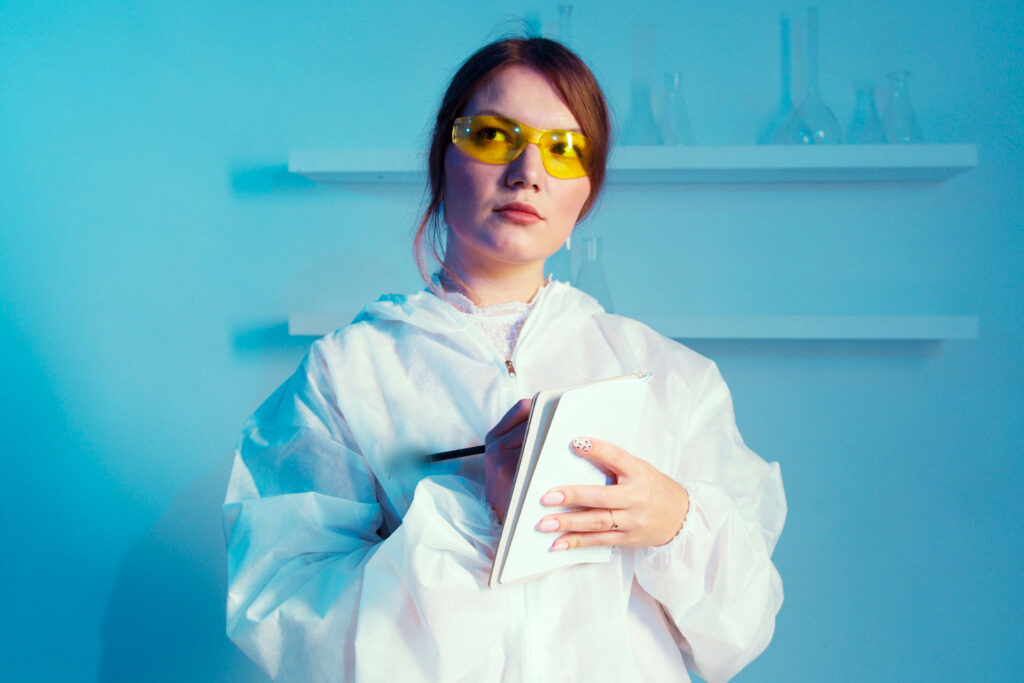The fourth transnational meeting (TPM3) took place on September 1st-2nd 2023 in a face-to-face format, and was organized by University of Nicosia, Cyprus. During the two days, there were 13 participants: 2 participants from CDUMP, 2 participants from National School of Public Health, 1 from University of Murcia, 2 from Lusofona University (COFAC), 1 from VITECO, 3 from Trakia University and 2 from University of Nicosia.
The aim of the meeting was to present an update about the curriculum dedicated to academic burnout for students as well as the train-the-trainer guide and to decide the next steps for finishing the content of IO3, namely, the internal piloting of IO3 in the Partner universities and the piloting of IO3 with students from Partner universities during the intensive study program (C2).
Moreover, the meeting’s aim was also to start preparing and discussing the activities of IO4- the policy toolkit. The agenda of the first day included a presentation of the project’s overview, provided by CDUMP, which included the activities conducted so far as well as what would be the planned activities for the next period, until TPM4. University of Nicosia facilitated a discussion about IO3’s content as implemented from the C1 event, followed by setting the next steps required in finishing IO3, as for instance the methodology and the period of time for piloting the curriculum in partner universities, and piloting the curriculum with students during the intensive study program (C2). It was also agreed that the presentations of the curriculum should be annotated. Lusofona University provided a presentation about the participants’ eligibility, recruitment methodology and the necessary logistics for the C2 event in Portugal. All partner universities agreed to follow the same recruitment methodology of students which should ensure transparency and fairness.
VITECO offered some updates about the Burnout Web platform in terms of what has been improved, according to the suggestions received in C1 event. Some of the improvements involved making the Resilience test more visible and to optimize the interface of the platform, as for example, not making the name and the surname or gender of a user mandatory fields and the place of education should betransformed in the university where the user was studying when self-assessing on the platform. VITECO also mentioned that the maintenance of the platform is ensured by frequent backups and that is safe from hackers’ attacks.
The second day of the TPM started with a follow-up of the first day of the TPM with an overview of what has been approved and the deadlines which havebeen agreed for the next activities of the project. National School of Public Health explained the methodology of starting IO4- The policy toolkit, which included 3 stages, as follows: (1) all partner universities should search for 3 best practices in preventing academic burnout in their own universities or other universities around the world, followed by the identification of 3 best practices dedicated to the well-being of students (2), and the last stage should focus on the involvement of at least 5 decision makers and ask them about what are the methods used in their universities to prevent academic burnout (3).
Trakia University presented an overview of the dissemination conducted by all partners and reminded that the visual identity of the Erasmus+ Commission is mandatory as well as sending newsletters about the project’s results to the identified stakeholders and to publish information about the project on the official websites of the partner organizations. It was also discussed the dissemination indicators, namely how to approach 3000 students to self-assess on the Burnout web platform, which would imply 600 students reachedper partner university, 1000 newsletters sent per partner university, and be more active on disseminating information on the Social Media of the project.
Regarding the evaluation, University of Murcia prepared an online Google Form evaluation for the TPM. According to the evaluation results, most of the participants were mostly satisfied of how the TPM took place and how the information was provided during the sessions, but there were mentioned a few important improvement suggestions such as time management of the agenda, reflected in the lack of coherence inexpressing different opinions and keep a discussion on point.











